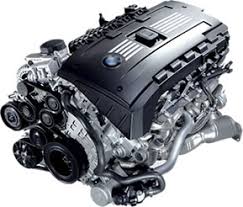When I first considered buying a used BMW engine, I knew the process required meticulous attention to detail and a keen understanding of what makes a quality purchase. As someone who values performance and reliability, I didn't want to compromise on these aspects, even with a used engine. Here's what I learned throughout my journey, and I'm confident these tips will help you too.
Understanding Your Needs
First and foremost, identify your specific requirements. Are you looking for an engine to restore a classic BMW model or to replace a failing engine in your current vehicle? Knowing your needs will narrow down your search and help you focus on finding the perfect match. For instance, a BMW M3 engine will differ significantly from a BMW 320i engine in terms of performance and compatibility.
Research Thoroughly
Before making any decisions, I dove deep into research. Understanding the various BMW engine models, their common issues, and their performance characteristics was crucial. Forums, reviews, and automotive websites provided a wealth of information. Additionally, I consulted with a few mechanics and BMW enthusiasts to get their insights and recommendations.
Check the Engine's History
One of the most critical steps in buying a used engine is checking its history. I requested a comprehensive report detailing the engine's previous ownership, mileage, maintenance records, and any past repairs. This report can usually be obtained from the seller or through a third-party service. An engine with a well-documented history is generally more reliable.
Inspect for Physical Damage
When I finally found a potential engine, I inspected it thoroughly for any signs of physical damage. Look for cracks, leaks, rust, or any other visible issues that could indicate poor maintenance or potential problems. Don't hesitate to ask the seller for detailed photos or videos if you're purchasing online. A physical inspection by a trusted mechanic is highly recommended, if possible.
Compression Test
A compression test is a reliable way to assess the engine's health. It measures the pressure produced by the engine's cylinders and can reveal issues like worn piston rings or valves. If the seller allows, have a professional perform this test. Consistent and adequate compression readings across all cylinders are a good sign of a healthy engine.
Listen for Unusual Noises
During my inspection, I paid close attention to any unusual noises. Start the engine and listen for knocking, ticking, or any other abnormal sounds. These noises can indicate underlying issues that may not be immediately visible. A smooth and quiet-running engine is typically a sign of good condition.
Verify the Engine's Compatibility
Ensuring the engine is compatible with your BMW model is crucial. I cross-checked the engine code with my vehicle's specifications to ensure a perfect fit. Mismatched engines can lead to performance issues and increased repair costs down the line. Consult your vehicle's manual or a knowledgeable mechanic to verify compatibility.
Ask About the Warranty
When buying a used engine, having a warranty provides peace of mind. At Turbo Auto Parts, where I eventually made my purchase, they offer a 3-year parts warranty on their used engines. This warranty gave me confidence in the quality and reliability of the engine I was buying. Always inquire about the warranty and understand the terms and conditions before finalizing your purchase.
Consider the Mileage
The engine's mileage is a key factor in determining its longevity and performance. While low-mileage engines are generally preferable, they may come at a higher cost. I balanced the engine's mileage with its overall condition and maintenance history. A well-maintained engine with slightly higher mileage can be a better choice than a neglected, low-mileage engine.
Test Drive If Possible
If you have the opportunity, a test drive can reveal a lot about the engine's performance. Pay attention to how the engine responds, its acceleration, and overall smoothness. Any hesitations, misfires, or performance issues during the test drive could indicate potential problems.
Buying from a Reputable Seller
Choosing a reputable seller is paramount. Turbo Auto Parts, where I bought my engine, specializes in used engines and transmissions in the USA. They have a solid reputation for providing high-quality parts and excellent customer service. A trusted seller like Turbo Auto Parts ensures you get a reliable engine and offers support throughout the buying process.
Conclusion
Buying a used BMW engine can be a rewarding experience if done correctly. By understanding your needs, researching thoroughly, and inspecting the engine carefully, you can find a high-quality engine that will serve you well. Remember to check the engine's history, perform necessary tests, and buy from a reputable seller like Turbo Auto Parts to ensure you make a wise investment. Happy driving!






Comments